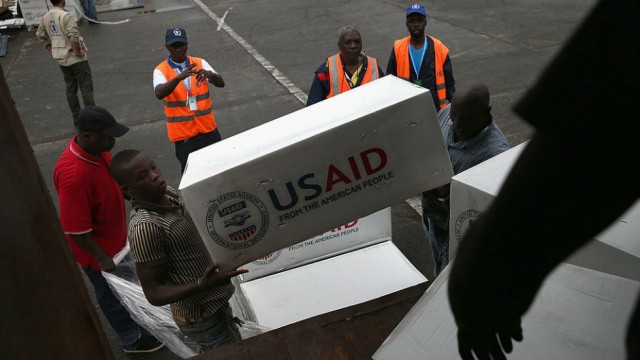
Saturday May 6, 2017

Overcoming partisanship and “America First” discourse from the White House, Congress voted this week to provide $990 million in emergency funding for famine response as part of the 2017 federal budget.
This funding will provide critical and life-saving relief for some of the more than 20 million people across North East Nigeria, Somalia, South Sudan and Yemen who are facing threat of famine, starvation, and death.
The long-term impacts of responding to famine became clear to me after meeting a man named Thabani Maphosa earlier this year. Maphosa currently lives in D.C. leading nonprofit World Vision’s work on global food security. But times weren’t always so easy for Maphosa.
Growing up in Zimbabwe, Maphosa experienced first hand the impact that hunger can have on communities like his. After falling ill from near starvation, his life was changed forever when he became a beneficiary of U.S. foreign assistance. He explained it in stark terms: “I am alive today because of the U.S. government.”
The emergency funding comes at a crucial time for those like Maphosa, who are facing the horrific and unimaginable consequences of famine.
Earlier this year, the United Nations estimated that around 1.4 million children are at immediate risk of death without urgent action taken by the international community. The United Nations and the World Food Program called for $4.4 billion in funding for response by June. The scale of the situation represents not only the greatest humanitarian crisis of my lifetime, but since World War II.
Reps. Tom Rooney (R-Fla.) and Barbara Lee (D-Calif.) built a strong bipartisan coalition in the House of Representatives to advocate for increased funding for emergency famine response. Key implementing organizations like CARE and World Vision also played a vital role in shoring up support for famine response. A letter circulated by Rooney and Lee garnered the signatures of 38 additional members of Congress. These members of Congress demonstrated compassion, and understand that famine response is critical to allow people to continue with their lives and livelihoods, to keep their children in school, to prevent the destabilization of entire regions and for supporting refugees fleeing into neighboring countries.
Funding famine response is the right thing to do. But it is also critical that we start asking difficult questions about how famine can be prevented and resilience can be promoted.
Funding for development assistance, especially USAID’s Feed the Future program, is vital for promoting agricultural development, nutrition, and resilience. When Ethiopia began to suffer an extended drought last year, early U.S. response and funding was instrumental in preventing the worst of the crisis and its economic effects. USAID reported that in Ethiopia communities that received the “full suite of resilience programs experienced a minimal decline (4 percent) in their food security, while other households declined significantly (30 percent).”
Targeted long-term investments in development aid can put people on a long-term path to a more hopeful future. A U.K. study estimated that every $1 spent on resilience will result in a $2.9 return over 20 years in the form of reduced humanitarian spending, avoided losses, and development benefits.
Despite this evidence, the Trump administration recommended that Congress cut funding for life-saving food aid by 21 percent and slash overall foreign assistance by a third in the next fiscal year. Further, the leaked budget proposal for State and USAID in 2018 shows all development assistance being eliminated.
It is vital that Congress recognize the spectrum of hunger and malnutrition and act accordingly. We must choose to prevent famine by investing in development and food assistance for communities in need.